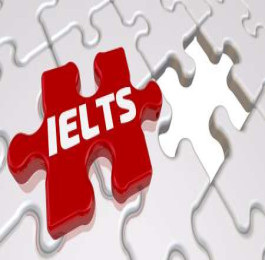It is often observed that IELTS students are inquisitive about reading exams as they have to find the answers to 40 questions within the given time interval, which means 60 minutes. Therefore, tips and tricks play a vital role in managing the time.
In the IELTS exam, mostly different types of questions may be given. Academic Students have to read three lengthy passages and give answers to forty questions in one hour. Each passage contains 2-3 different types of questions to find the answers.
Solve them. Different important types of questions are below:
Important question types are:
- TRUE FALSE NOTGIVEN
- HEAD MATCHING
- SENTENCE COMPLETION
- MULTIPLE CHOICE
- LIST SELECTION
- SHORT ANSWERS
- CHOOSING A TITLE
(1)TRUE FALSE NOTGIVEN
During the reading exam, statements containing information will be given and students have to find out whether the given statement is True, False or not.
- True: if the students get the information in the passage and it agrees with the statement.
- False: The question statement and given information in the passage have different meanings. The passage shows the statement is wrong.
- Not given: if students do not find any information in the passage.
Tips for True/False/Not Given
- It is important to understand the meaning of each answer
- Such types of answers come in order
- Before answering, it is vital to paraphrase the statement
- True/Yes- means the same information is in the Text
- False/not- the opposite information is in the text
- Not Given- the information is not found in the passage
(2)HEAD MATCHING
- During the IELTS exam, students can be asked to match headings to sections of text. Such types of questions test students’ ability to analyze the main information of each passage.
- Heading are the short sentences that summarize the idea of the paragraph. During the exam, students have to find the best heading that summarizes the information in a paragraph.
- In IELTS exams, students get 5-7 headings and they have to match each paragraph in the reading text to one heading. Make sure, always headings are more than paragraphs.
TIPS FOR MATCH THE HEADINGS
- It is essential for students to read the headings before they read the passage
- Headings are more than passage
- Analyze the headings properly before trying to match them to paragraphs or sections
- Most answers can be numerals (i,ii,iii,iv,v etc)- so it is important to read the instructions carefully to check.
- Answers don’t come in order
(3)SENTENCE COMPLETION
It is often seen in the IELTS exam that students have to complete a sentence. In such a task, students are given sentences from the passage with a gap in it. They have to fill it with words taken directly from the reading.
TIPS FOR SENTENCE COMPLETION:
- Make sure that your answer should not exceed the stated word limit-sometimes unneeded adjectives and articles can be left out to achieve this.
- Your answer should be fits grammatically in the gap.
- Identify the type of word that needed for the gap (verb, noun, adjective etc.)
- Usually answers come in order
(4)MULTIPLE CHOICE:
These questions come both in academic and general IELTS exam .Students are asked MCQs (multiple choice questions).so candidates should choose the right answer from a list of possible choices.
TIPS FOR MULTIPLE CHOICE QUESTIONS:
- Mostly answer come in order
- Student should paraphrase the question information and options
- If there is any specific information than student should scan it
- Given answers are often letters(A,B,C or D)-so instructions should be read carefully
(5)LIST SELECTION:
- This task is different from multiple choice as the given questions all relate to one long list of possible answers. IELTS students have to choose the correct option from a list of words that could be any information or names.
TIPS FOR LIST SELECTION:
- IELTS learners find the answer in order
- Students should prepare paraphrases and read through the list
- Need to find keywords while reading through the questions.
- During reading it is compulsory to locate the information in the passage
- Answers are often letters (A, B, C…..)
(6)SHORT ANSWERS QUESTIONS
- Students have to find the answers to such questions regarding details in the passage
TIPS FOR SHORT ANSWERS QUESTIONS:
- Students find the answers in order
- Find out the words that are suitable for your answers these could be verbs, nouns etc.
- It is quite essential to paraphrase the vocabulary in the questions
- Need to scan the passage to locate the information
(7)CHOOSING A TITLE
- In the task, students have to find the most relevant title from a list
TIPS FOR CHOOSING A TITLE:
- Analyze the differences between the possible titles
- Need to focus on opening and closing paragraphs of the passage
- Students should not spend much time on this question.
- These questions are worth only one point.
Do you have any Doubts?
We are here to assist you



